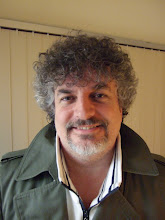In the alternative medicine world, wellness means taking care of yourself so you don't get sick. Let's find ways to avoid cancer, heart disease, mental illness. We can do this through changing our diet, exercising more, and changing our energy fields.
In Western medicine, we wait until we get one of these diseases, then we rush heroically to “beat the disease.” In Western medicine, the term wellness means “early detection” of disease. If you walk into a “Wellness Center” in a hospital, you'll see mammogram screening rooms, MRI machines and other tools to scan for the existence of disease.
Is that wellness? To me, it's not. Wellness is about staying well, it is about avoiding disease in the first place. When a person is told “You have cancer,” it is a major blow to their psyches, and their lives. Why go through that if you don't have to? Why not do whatever you can to avoid that terrible day?
Western medicine treats the “pre-detection” part of life as a kind of random soup of nothingness. You can't really do anything about any of these diseases, you just get them or you don't. No rhyme or reason to it, it just hits you, and then you deal with it.
Genetics is a big factor in the Western medical model. If you get cancer, ah, well, it was in your genes that you'd get it. You see, your great grandfather had cancer, so it was inevitable that you'd get it too.
Huh? Unfortunately, Western medicine can't explain why siblings get or don't get diseases supposedly passed on from their parents. One sister dies of cancer at a 25 (because of genetics) and the other sister lives to be 100 (also genetics?).
For my part, I'm going to take the best care of myself possible, and not play a silly waiting game for disease.
Daryl Kulak is the author of Health Insurance Off the Grid, a book that explores how a combination of holistic health and the new Health Savings Account (HSA) can make an enormous difference in the budget and health of the self-employed. Daryl is not a medical doctor, nor is he an insurance agent.
Article Source: http://EzineArticles.com/?expert=Daryl_Kulak

No comments:
Post a Comment